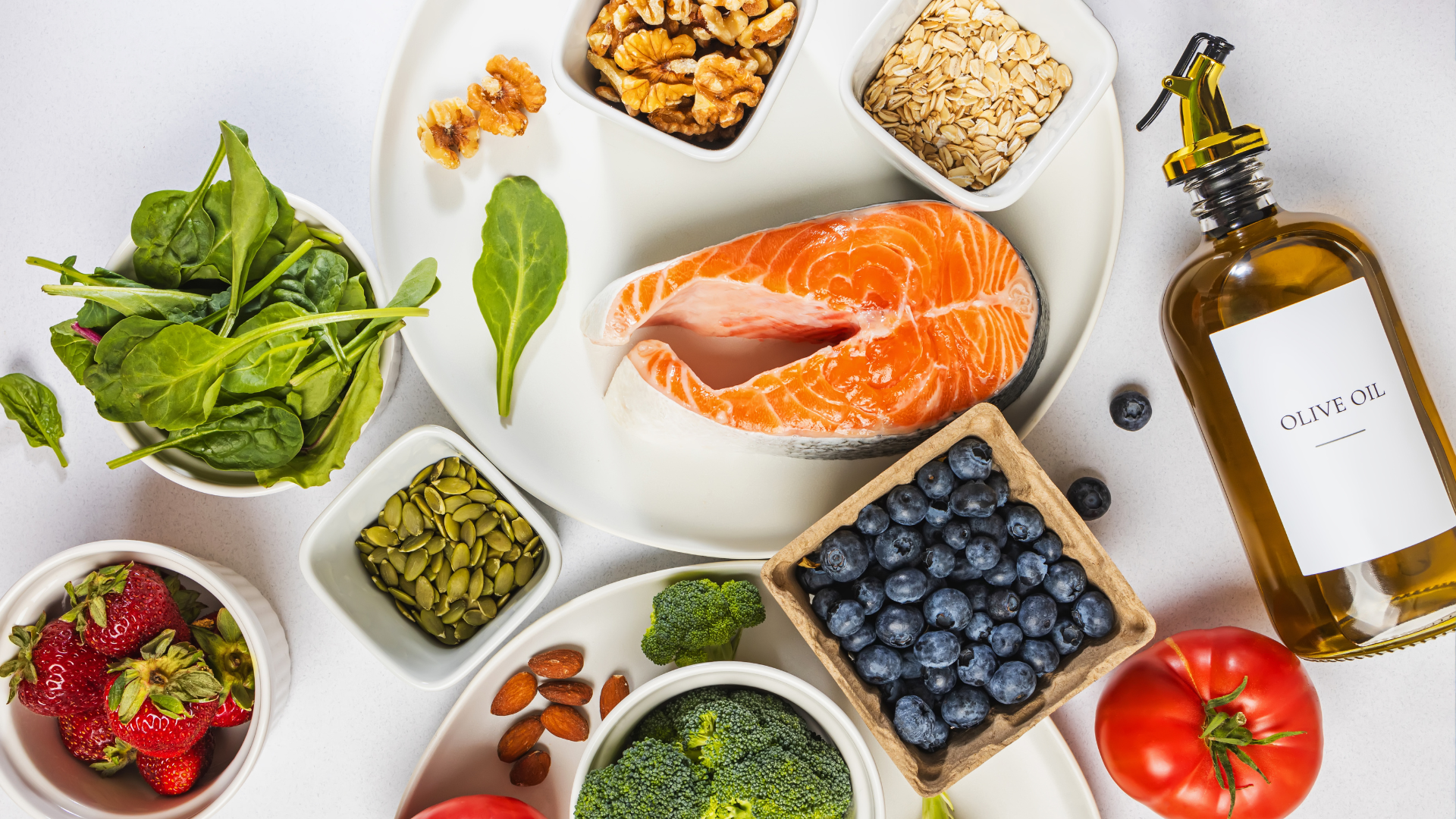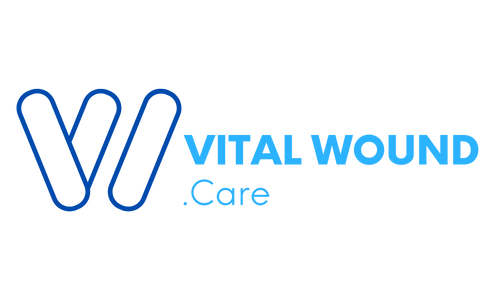The Importance of Nutrition in Wound Healing
Nutrition plays an important role in wound healing, significantly influencing the body’s ability to repair damaged tissue. A comprehensive nutritional assessment is essential to identify any signs of malnutrition, which can impair wound healing and lead to complications such as pressure ulcers. Adequate body mass and lean body mass are critical for wound management, as they provide the necessary resources for wound contraction and tissue growth. Specific nutrients such as arginine, essential fatty acids, and vitamin B are vital for enhancing wound tensile strength and promoting wound healing activities throughout the healing process.
The role of nutrition in chronic wound care is particularly important, especially in individuals with conditions like diabetic wounds. Delayed wound healing often results from an inadequate supply of nutrients to the wound, which is necessary for effective wound formation and overall metabolism and nutrition. Addressing nutritional deficiencies can significantly decrease the risk of decreased wound strength and promote optimal healing outcomes. Therefore, understanding the necessary nutrients for wound healing is crucial for healthcare providers to implement effective strategies for wound healing in diabetic and chronic cases.
Understanding Wound Healing

Definition of Wound Healing: Wound healing is the body’s complex biological process that repairs and regenerates tissues following an injury. It involves a series of orchestrated physiological events designed to restore the integrity of the skin and underlying tissues. Proper wound healing is crucial not only for physical recovery but also for preventing complications such as infections, chronic wounds, and scarring. Understanding this process helps in developing effective treatment and nutritional strategies to enhance recovery.
Stages of Wound Healing:
Hemostasis: This initial phase begins immediately after an injury occurs. The primary goal is to stop bleeding. Blood vessels constrict to reduce blood flow, and platelets adhere to the exposed tissue to form a temporary clot. This clot not only prevents further blood loss but also serves as a scaffold for incoming immune cells. Factors like platelet activation and the release of clotting proteins play a vital role in this phase, setting the foundation for subsequent healing.
Inflammation: Following hemostasis, the inflammatory phase begins, lasting from a few days to a week. During this phase, the immune system responds to the injury by sending white blood cells (like neutrophils and macrophages) to the wound site. These cells help clear away debris and bacteria, preventing infection. While inflammation is crucial for healing, excessive inflammation can lead to complications, so a balanced immune response is necessary for optimal recovery.
Proliferation: The proliferation phase typically starts a few days post-injury and can last for several weeks. In this phase, new tissue formation occurs through a process called granulation. Fibroblasts produce collagen and extracellular matrix, which provide structure to the healing tissue. At the same time, new blood vessels (angiogenesis) develop to supply nutrients and oxygen to the regenerating tissue. Epithelial cells then migrate across the wound bed to re-establish the skin barrier, completing the initial wound closure.
Remodeling: The final phase of wound healing can last for months or even years. During remodeling, the newly formed tissue matures and strengthens. Collagen fibers reorganize and cross-link, increasing the tensile strength of the wound site. Although the wound may appear healed externally, the underlying tissue continues to evolve. This phase is essential for restoring the skin’s integrity and function, making nutrition and care during this period vital for long-term recovery and minimizing scarring.
The Impact of Nutrition on Wound Healing

Nutrition plays a critical role in the wound healing process, as adequate nutrition is essential for the body to repair tissues effectively. Wound healing is a complex physiological process that requires various nutrients in the wound healing phase, including proteins, vitamins, and minerals. Protein, in particular, is vital as it contributes to the formation of skin cells and the structure of the cell membrane, which are both involved in wound healing. A deficiency in protein can lead to protein energy malnutrition, significantly impairing healing in patients and delaying ulcer healing.
The body mass index (BMI) of an individual may be directly linked to their healing capacity, as those with a lower BMI may experience challenges in enhance healing. Furthermore, enteral nutrition can facilitate wound healing by providing the body with the necessary nutrients it needs to heal. Important nutrients for wound healing include B vitamins, which play a crucial role in energy metabolism and cell regeneration, thereby promoting an effective healing process.
Key Nutrients for Optimal Wound Healing
Protein: Protein is fundamental to the wound healing process due to its critical role in tissue repair and immune function. Collagen, a protein that provides structural support to tissues, is essential for forming new skin and repairing damaged areas. Additionally, protein is vital for the synthesis of enzymes and hormones that regulate various healing processes. High-quality protein sources include lean meats (such as chicken, turkey, and fish), dairy products (like yogurt and cheese), eggs, and legumes (including beans, lentils, and peas). These foods provide the necessary amino acids that aid in repairing tissue and bolstering the immune system, which is crucial for preventing infections during the healing process.
Vitamins:
- Vitamin C: This vitamin plays a pivotal role in collagen synthesis, which is essential for skin repair and integrity. It also enhances the immune response, helping to protect against infections that could complicate healing. Vitamin C-rich foods include citrus fruits (like oranges and grapefruits), strawberries, kiwis, bell peppers, and broccoli.
- Vitamin A: Known for its importance in maintaining skin health, vitamin A supports cellular function and promotes the healing of epithelial tissues. It also helps in regulating the immune response, making it a crucial nutrient for wound healing. Foods high in vitamin A include carrots, sweet potatoes, spinach, kale, and liver.
- Vitamin E: This vitamin is a powerful antioxidant that helps reduce oxidative stress and inflammation, which can impede healing. Vitamin E also supports immune function and promotes blood circulation, further aiding the healing process. Foods rich in vitamin E include nuts (such as almonds and hazelnuts), seeds (like sunflower seeds), spinach, and avocados.
Minerals:
- Zinc: Zinc is critical for cell division, protein synthesis, and immune response, making it an essential mineral for wound healing. It aids in the formation of new tissue and helps prevent infection. Good sources of zinc include meat, shellfish (like oysters), legumes, seeds, and nuts.
- Iron: Iron plays a vital role in oxygen transport and energy metabolism, which are crucial for effective healing. It helps deliver oxygen to tissues, promoting cellular repair and regeneration. Iron-rich foods include red meat, poultry, fish, beans, spinach, and fortified cereals.
Healthy Fats: Healthy fats, particularly omega-3 fatty acids, are essential for reducing inflammation and promoting healing. Omega-3s help modulate the inflammatory response, which can facilitate quicker recovery. These beneficial fats are found in fatty fish (such as salmon, mackerel, and sardines), flaxseeds, chia seeds, walnuts, and canola oil. Incorporating omega-3-rich foods into the diet can support optimal healing and improve overall health during recovery.
Dietary Recommendations for Wound Healing

Effective nutrition is crucial for optimal wound healing, as the body requires specific nutrients to repair itself efficiently. Proper nutrition and wound healing are interconnected, emphasizing the importance of a well-balanced diet. Wound healing requires an adequate supply of macronutrients and micronutrients to facilitate cellular processes and tissue regeneration.
Key components in the diet include adequate levels of protein, which play an essential role in cell repair and immune function. Sources of protein include lean meats, fish, legumes, and dairy products. Moreover, focusing on an area with the nutrients needed for healing, such as vitamins A, C, and zinc, can significantly enhance recovery outcomes. Incorporating these elements into daily meals can create a supportive environment for the body to heal effectively.
Special Considerations
When addressing the nutritional needs of different populations, special considerations must be taken into account. For instance, individuals with specific health conditions may require targeted supplementation to ensure they receive essential vitamins and minerals. This is particularly true for those with malabsorption issues or chronic diseases that hinder nutrient uptake.
Additionally, age and lifestyle can influence the necessity for supplementation. Elderly individuals often face challenges in maintaining adequate nutrient levels due to dietary restrictions or decreased appetite. Meanwhile, athletes may require increased supplementation to support their energy demands and enhance recovery.
Furthermore, cultural and dietary preferences can impact nutrient intake, necessitating tailored supplementation strategies. For example, those following a vegan diet might need additional sources of vitamin B12, iron, and omega-3 fatty acids to meet their dietary needs effectively.
Conclusion
Nutrition is an essential element in the wound healing process, significantly impacting each stage from hemostasis to remodeling. In the initial phase of hemostasis, adequate protein intake helps to form clots, preventing excessive blood loss. During the inflammation stage, nutrients such as vitamin C and zinc play crucial roles in supporting the immune system and reducing inflammation. In the proliferation phase, a focus on protein and other key nutrients fosters tissue formation and repair, while healthy fats and antioxidants aid in minimizing oxidative stress. Lastly, during the remodeling phase, continued nutritional support ensures the wound matures properly, enhancing skin integrity and strength. By understanding the importance of these nutrients—such as proteins, vitamins A, C, and E, minerals like zinc and iron, and healthy fats like omega-3s—individuals can make informed dietary choices that promote effective healing.




